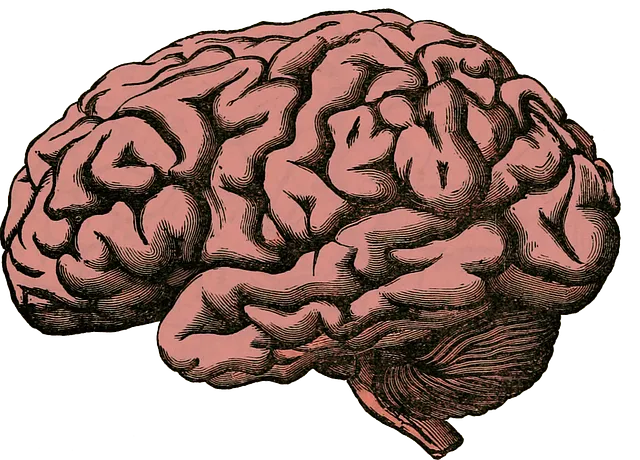Kaiser Permanente mental health Boulder distinguishes itself by integrating innovative solutions like Mental Wellness Coaching Programs and Community Outreach for accessible, culturally sensitive mental health resources. Their holistic approach inspires apps that merge digital tools with evidence-based practices, such as CBT and mindfulness meditation, to enhance emotional regulation and burnout prevention. Aiming for personalized, convenient mental healthcare, these apps track moods, set goals, offer self-care reminders, and provide tailored insights, potentially transforming mental health support into a more inclusive, responsive system for both users and providers.
In today’s fast-paced world, mental wellness is more critical than ever. According to Kaiser Permanente, chronic stress and mental health issues are prevalent, highlighting the need for accessible solutions. This article explores the development of mental wellness apps, drawing insights from Kaiser Permanente and the Boulder approach. We delve into key features and implementation strategies, offering a comprehensive guide to creating effective digital tools that support mental well-being, much like the successful Boulder model.
- Understanding Mental Health Needs in Today's World: A Kaiser Permanente Perspective
- Designing Effective Digital Solutions: The Boulder Approach to Mental Wellness Apps
- Key Features and Implementation Strategies for a Comprehensive Mental Health App
Understanding Mental Health Needs in Today's World: A Kaiser Permanente Perspective

In today’s fast-paced and often stressful world, understanding mental health needs has become more critical than ever. Kaiser Permanente, a leading healthcare provider in Boulder and beyond, recognizes that mental wellness is an integral part of overall well-being. Their perspective emphasizes the importance of addressing mental health challenges proactively, moving beyond traditional therapy models. By integrating innovative solutions like Mental Wellness Coaching Programs Development, Kaiser Permanente aims to empower individuals with tools for self-care and resilience.
This approach extends into their Community Outreach Program Implementation initiatives, where they actively engage diverse communities, ensuring that mental health resources are accessible and culturally sensitive. With a focus on Mental Health Policy Analysis and Advocacy, Kaiser Permanente also strives to influence systemic changes, promoting policies that support mental wellness at both the individual and societal levels. Their comprehensive strategy reflects a modern understanding of mental health as a dynamic aspect of daily life, requiring continuous support and adaptive solutions.
Designing Effective Digital Solutions: The Boulder Approach to Mental Wellness Apps

In the realm of mental wellness app development, the Boulder approach, inspired by Kaiser Permanente’s commitment to holistic healthcare, offers a innovative solution. This method focuses on creating digital tools that seamlessly integrate into users’ daily lives, promoting emotional regulation and burnout prevention strategies for healthcare providers, much like public awareness campaigns development that educate and engage. By leveraging technology, these apps aim to make mental health support accessible and convenient, addressing issues from stress management to overall well-being.
The Boulder approach prioritizes user experience, ensuring the apps are intuitive and effective. It emphasizes evidence-based practices tailored to individual needs, rather than one-size-fits-all solutions. This personalized touch, combined with the convenience of digital access, has the potential to revolutionize mental health care, making it more inclusive and responsive to the unique challenges faced by both healthcare providers and individuals seeking support.
Key Features and Implementation Strategies for a Comprehensive Mental Health App

A comprehensive mental health app should offer a wide array of features to cater to diverse user needs. Key implementations include integration of mood tracking tools that allow users to monitor and log their daily emotional states, providing personalized insights into triggers and patterns. Similar to how Kaiser Permanente mental health Boulder services utilize evidence-based practices, the app can incorporate techniques such as cognitive behavioral therapy (CBT) exercises, mindfulness meditation guides, and stress management strategies derived from research by organizations like the Stress Management Workshops.
Additionally, incorporating features for goal setting and progress tracking, such as those found in Mental Wellness Podcast Series Production, enables users to set achievable mental health goals and monitor their improvement over time. Regular check-ins and automated reminders for self-care activities, including exercise, hydration, and healthy eating habits, can also enhance the app’s effectiveness in promoting overall mental wellness. By combining these elements, a well-rounded mental health app ensures users receive continuous support tailored to their unique needs.
Mental wellness apps, informed by perspectives like those at Kaiser Permanente and innovative approaches like the Boulder model, hold immense potential to address growing mental health needs. By integrating key features that cater to a comprehensive range of services, these digital solutions can significantly enhance accessibility and effectiveness in supporting user well-being. As organizations like Kaiser Permanente continue to champion mental health initiatives, the development of sophisticated yet user-friendly apps will play a pivotal role in shaping a healthier future for individuals across communities.






